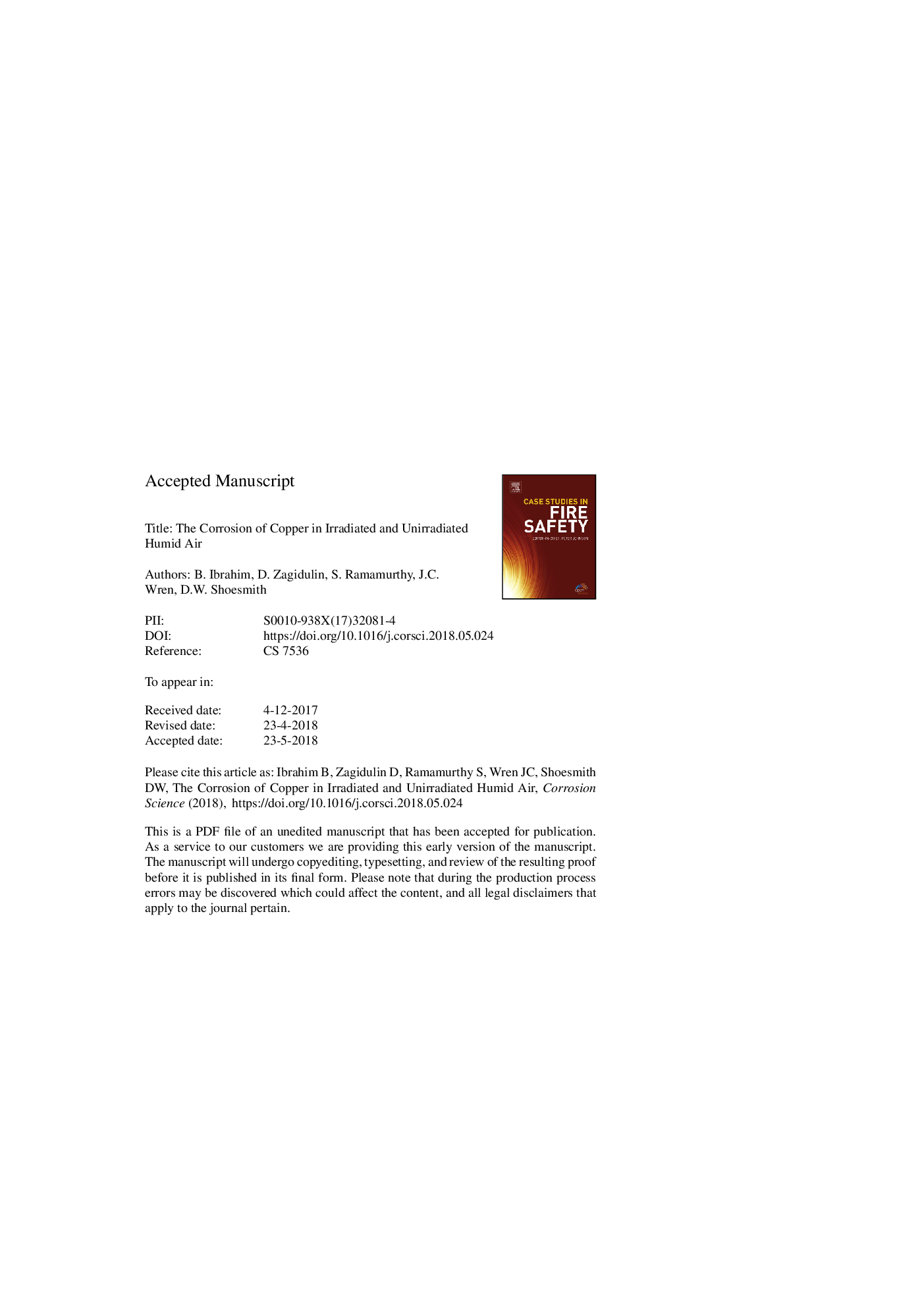| Article ID | Journal | Published Year | Pages | File Type |
|---|---|---|---|---|
| 7893047 | Corrosion Science | 2018 | 33 Pages |
Abstract
Copper corrosion in aerated water vapour has been studied as a function of temperature, relative humidity in the presence and absence of a low gamma radiation dose rate. On surface areas covered by a thin water layer corrosion ceased after ⤠30 days by the formation of CuO on the surface of a Cu2O layer. At the locations of condensed water droplets corrosion was more extensive since the corrosion product developed porosity. Radiation accelerated the formation of Cu2O on corroded areas and increased the number and size of the more extensively corroded locations. The distribution of condensed water was the dominant feature controlling corrosion penetration.
Related Topics
Physical Sciences and Engineering
Materials Science
Ceramics and Composites
Authors
B. Ibrahim, D. Zagidulin, M. Behazin, S. Ramamurthy, J.C. Wren, D.W. Shoesmith,
